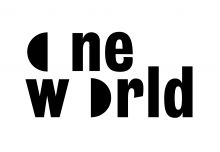A close examination of the behaviour of the operators during the Chernobyl disaster showed two distinct types of an unsafe act. First there was an unintended slip at the outset of the experiment, the reactor was operating at a too low power. The second act was that de operators decided to keep going with the trail. This example caused for a change in the way there was thought about his enquiries. The first focus was on individual error markers with a purely cognitive information-processing orientation and now they shifted more to an orientation that incorporates motivational, social and institutional factors. Errors can arise from informational problems in either the mind or in the environment. Violations are deliberate acts; people break the rules but people mostly don't intend the bad outcomes. Violations are mostly based on motivational factors: beliefs, attitudes and norms.
Violation Types
There are four types of violations:
- Corner-cutting or routine violations: Mostly committed to avoid unnecessary effort or to circumvent procedures. Most organizations have formal rules but also informal procedures (black book). The informal procedures are derived from skilled and experienced operators who recognize that formal rules are sometimes written without any expert knowledge. It would be best of the people who make the rules and the people who perform the procedures come together to create a workable set.
- Trill-seeking or optimizing violations: We have a lot of needs, which are often conflicting. Driving gives us a great visual of these needs; you want to get from A to B, but while you’re driving you enjoy speeding, like cutting in and may even start tailgating. Men and young people are more likely to violate, and it seems that women are not impressed by it so they act as a restraint on driver violations.
- Necessary violations: Many organizations as result of accidents continue to write additional procedures that aren’t necessary to get the job done. For the production of error is usually under-specification of the process, but with necessary violations it is over-specification. These violations to get to job done will become routine eventually.
- Exceptional violations: This type of violation is likely to occur under exceptional conditions. Because they occur infrequently, the operators are less practiced and the procedures often sparse.
What are ‘Mental Economics’ of Violating?
Petra Klumb investigated the costs and benefits of non-compliance. Error was more likely to occur when the benefits outweigh the costs. Examples of perceived benefits: easier way of working, saves time, gets the job done, looks cool and meets a deadline. Perceived costs can be: a possible accidents, injuries, damage to assets, costly repair, disapproval of friends.
Sometimes violations seem as an easier way of working with immediate benefits, the costs are mostly remote. To change this perception it is important to not increase the costs of non-compliance, but to promote the benefits of compliance.
Voor volledige toegang tot deze pagina kan je inloggen
Inloggen (als je al bij JoHo bent aangesloten)
Aansluiten (voor online toegang tot alle webpagina's)
Hoe het werkt
- Om alle online toegang te krijgen, kun je je aansluiten bij JoHo (JoHo Membership + Online Toegang)
- vervolgens ontvang je de link naar je online account en heb je online toegang
Aanmelden bij JoHo

- Study guide with A Life in Error: From Little Slips to Big Disasters by Reason
- What are the nature and varieties of human error? - Chapter 1
- Plans lead to Actions and Consequences - Chapter 2
- Skill-based, Rule-based and Knowledge-based performances - Chapter 3
- Slips and Lapses when Absent-Minded - Chapter 4
- Individual Differences - Chapter 5
- SIML in the Courtroom - Chapter 6
- The New Freudian Slip - Chapter 7
- Failures in planning - Chapter 8
- Violations - Chapter 9
- Organizational Accidents - Chapter 10
- Resisting Change in Organizational Culture - Chapter 11
- Medical Error - Chapter 12
- Disclosing Error - Chapter 13
- Looking back - Chapter 14
- 1 of 2
- volgende ›
Chapters
Teksten & Informatie
JoHo 'chapter 'pagina
Wat vind je op een JoHo 'chapter' pagina?
- JoHo chapters zijn tekstblokken en hoofdstukken rond een specifieke vraag of een deelonderwerp
Crossroad: volgen
- Via een beperkt aantal geselecteerde webpagina's kan je verder reizen op de JoHo website
Crossroad: kiezen
- Via alle aan het chapter verbonden webpagina's kan je verder lezen in een volgend hoofdstuk of tekstonderdeel.
Footprints: bewaren
- Je kunt deze pagina bewaren in je persoonlijke lijsten zoals: je eigen paginabundel, je to-do-list, je checklist of bijvoorbeeld je meeneem(pack)lijst. Je vindt jouw persoonlijke lijsten onderaan vrijwel elke webpagina of op je userpage
- Dit is een service voor JoHo donateurs en abonnees.
Abonnement: nemen
- Hier kun je naar de pagina om je aan te sluiten bij JoHo, JoHo te steunen en zelf en volledig gebruik te kunnen maken van alle teksten en tools.
Abonnement: checken
- Hier vind je wat jouw status is als JoHo donateur of abonnee
Prints: maken
- Dit is een service voor wie bij JoHo is aangesloten. Wil je een tekst overzichtelijk printen, gebruik dan deze knop.




















